Sean Jacobs's Blog, page 571
January 27, 2012
Where do footballers playing in the top five European leagues come from?
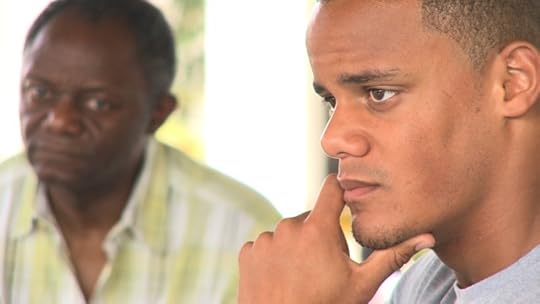
Written by Elliot Ross
The CIES Football Observatory in Switzerland (they study football) recently put out an interactive map trying to show where footballers playing in the top five European leagues come from. Unsurprisingly, West Africa's big five – Ivory Coast, Ghana, Senegal, Nigeria and Cameroon – dominate the African numbers, each contributing around 20 players. Mali has ten, South Africa four, and perennial trophy-hoisters Egypt just two. Ghanaian representation in the big leagues has more than doubled in just the last four years, but overall the numbers are pretty flat, bad news for anyone fretting about the "progress" of African football.
The picture it presents overall is of top-level European club football being a game played primarily by Western Europeans, Brazilians and Argentinians.
But should we trust this odd-sounding outfit to tell us where the best footballers come from? After all, their rigorous statistical methods told them Chelsea would carry all before them in this season's Premiership. Fernando Torres' goals record at Liverpool must have put their analysis all out of whack.
The trouble with their map is that while it claims to show players by country of origin (an elastic category), in fact it shows them according to national affiliation, and this is why it feels like these numbers don't quite do justice to African involvement.
So Kevin Prince-Boateng (b. Berlin) shows up as Ghanaian, but his brother Jerome, who plays for Germany, doesn't. Mario Balotelli and Danny Wellbeck, strikers on either half of Manchester, were both born to Ghanaian parents before opting to represent Italy and England respectively. Are these players African?
DR Congo is shown as contributing only a single player to the top leagues (which must be nonsense even by the methods applied), but a player like Vincent Kompany, the current captain of Belgium and Manche$ter City, could easily have represented the DRC instead, as could Chelsea's Romelu Lukaku.
A more interesting map might look at how players representing European national teams have roots all over the world.
It's also worth remarking that prohibitive Visa regulations make it extremely difficult for players from low FIFA-ranking countries to get work permits in European countries. Even three hours of dogged dialing from Raila Odinga couldn't get McDonald Mariga a work permit in time for him to complete his mooted transfer to Manchester City in 2010, the work permit rules for the UK being among the most exclusionary.
Countries like Zambia, Malawi and Botswana are locked out of the scouting network for European clubs, which have few links with academies outside of the West African superpowers. If another Eusebio turned up in Maputo today, there's a good chance he would never make it to Benfica.








Zarina Bhimji: "A photograph cannot give you concrete information"
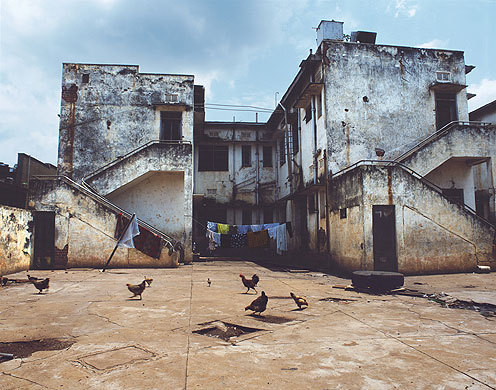
Zarina Bhimji's exhibition at The Whitechapel Gallery is the first major survey of her work, documenting 25 years of her artistic practice. Throughout various mediums — photographs, films and sculpture — Bhimji's attention is shown to lie on the layering of human histories upon objects, and although she strongly states she is not addressing the history of colonialism and her own experiences as a Ugandan in the 1970s, her work inevitably touches on this history. She charts poetic and ambiguous themes by examining the traces that colonialism has left behind.
Bhimji was born in Mbarara in Southern Uganda in 1963 to Indian parents, and was forced to move following President Idi Amin's expulsion of all South Asians in 1972. Amin claimed that the Indian minority, who had been brought to Uganda during British rule to work in skilled jobs, were 'sabotaging' the Ugandan economy. Bhimji and her family moved to Britain, as many others did, and only returned to Uganda during the preparation for her first film, Out Of The Blue (2002).
Although she firmly denies that her work is concerned with the specificities of her own history, and that of Uganda (see this curt interview here), it is of course unavoidable for these histories not to form an important narrative in her work. In the first photographs exhibited, Bhimji's eye brings the remnants of an earlier time into playful and ironic counterpoint with the present. In Rado Watch, Such Western Precision (2007), a dog lies asleep on the concrete porch of a government building, with the sign 'assistant quartermaster' hanging above him. Her title points toward the zealous bureaucratisation that the British brought with them, and together with the photograph shows the how these legacies are suspended, often strangely, surreally, within the contemporary moment. Perhaps the assistant quartermaster no longer exists, and a sleepy dog now occupies his watch? The possible narratives that Bhimji's photographs suggest are both intriguing and playful.
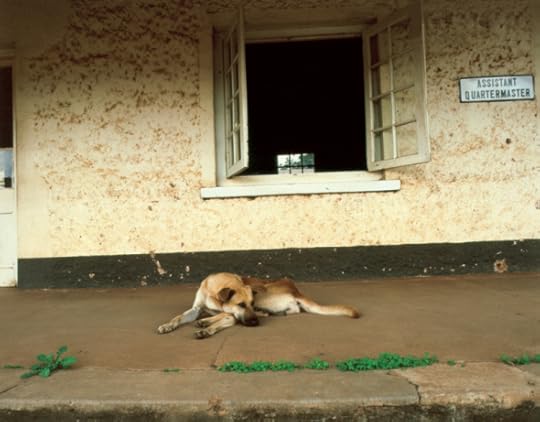
Rado Watch, Such Western Precision (2007)
Similarly in Echo (1998-2007), a photograph of a school wall provides an explicit political tract that Bhimji's work itself avoids. On the wall, children's graffiti and drawings are mixed with political messages, 'The man which came from Congo should be killed by the order of army!' The title of the work, 'echo', and its relationship to the content of the image seems to exemplify Bhimji's broader approach to her subject. Rather than looking back, and romanticising the Uganda she was forced to leave, Bhimji's lens is unambiguously situated in the present, yet allowing the traces, echoes and residues of an earlier history inform that present. Her work is completely depopulated; instead, by treating objects as evidence of social life, her work becomes poetic, rather than documentary. She is creating an ambiguous visual history of the present via remnants of the past.
The objects she pays attention to; the frayed ledger books in an abandoned administrative building, decaying shutters still retaining the vibrancy of their original yellow paint, or an intricate yet crumbling statue of Queen Victoria (all seen in the film Yellow Patch) develops a poetics of forgotten colonised space. By filming walls, chairs, the exteriors of buildings, Bhimji examines what they might say about people's lives, with an almost forensic eye. She sets your imagination running while you try to piece together location with objects, historical context with imagined narratives. This effect contradicts the empiricism that we would associate with historical 'truth' and forensic attention, her method cleverly contradicts its effect: she says of photographs that 'they cannot give you concrete information'.
In her two films, Out Of The Blue (2002) made for dOCUMENTA 11 and Yellow Patch (2011), Bhimji further disjoints image from referent, using sonic techniques to successfully take the suggestions made in her earlier photography into a different realm. Where the image is rooted, situated, the sound haunts and inhabits them with echoes of life. In an abandoned administrative office, dusty and fraying, yet retaining some of its original colonial prestige, the sounds of radio announcements and chatter fill the space, yet, at a distance. Where her photographic captions point to the echoes of Uganda's political history imaginatively, her use of sound loosens the bond between time and space, image and location, creating an ambiguous space in-between where her curiosity of objects and their histories can be examined freely.
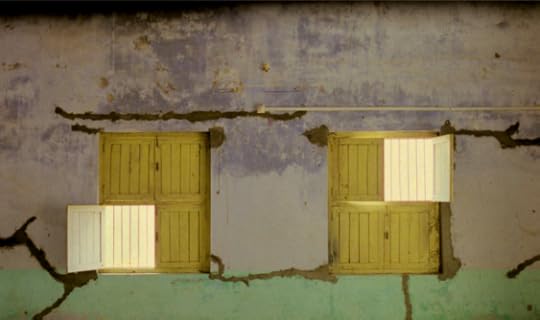
A still from Out Of The Blue (2002)
In another scene, a large crack in a wall is accompanied by a tectonic rumbling, so loud it can be felt in your chest. Perhaps my imagination had run wild by this point, but it felt strongly suggestive of the ripping, shape shifting effect of time passing, particularly on a social scale, and even more specifically in the case of once colonised countries. Her evocative, highly textural yet sparse cinematic language is an arresting way of addressing the complex histories of objects, their spaces, and the people who once inhabited them.
* Zarina Bhimji runs at The Whitechapel until 9th March 2012. Admission Free.








The whole 'Afrobeats' thing
Two recent features in the mainstream British media turned out to be enough to spur some debate about the so-called "Rise of the Afrobeats" in the U.K. The Guardian interviewed DJ Abrantee (quoting Abrantee as him having coined the term "Afrobeats" — or so the journalist said, which Abrantee later denied, but which didn't stop MTV Iggy from copying it) while BBC radio aired a one-hour show as "your complete guide to Afrobeats." Both features came with popular music plugs but also with some ludicrous quotes (such as "Nigerians are just hustlers on a high level… A Kenyan you can just walk by, he doesn't exude that super star flair"; "male African dancers are much better dancers than the female Africans"; "African music is just beginning, just starting now"; "Africa's a place full of love, despite it being depicted as war-torn"; "these songs are not about sex, but about love"; etcetera). Host of the show DJ Edu later clarified he wanted to "package African music to the West who loves a story" but it got us thinking.
Even from the outside looking in, one can recognize a persistent genre obsessed hype machine around "Black Music" in the U.K. We're familiar with wider debates around the practice in the "World Music" industry in general so we won't spend too much time explaining why the "Afrobeats" name is somewhat irresponsible and misleading (adding an "s" to Afrobeat?). Those of us who are interested in promoting African music around the world have to be wary of the reflex to lump music from diverse places and historical contexts into one new category. If we want to be pan-African, then let's be pan-African, but let's not pave over local identities and histories solely for the sake of an easier marketing plan (let alone for the West "that loves a story"). Plus, since we at AIAC often rep for smaller countries, we realize that scenes in less equipped areas will never be able to compete with the giant industries in places like Ghana and Nigeria. If practices like this continue, too many local and national scenes will fall victim to unfair international competition.
Another problematic claim that has emerged through the dialogue is that the U.K. is "leading the way" in the popularization of African music in the world. While we'll admit that the U.K.'s large immigrant communities certainly play a role in the popularization of African music in the British mainstream, the problem with a U.K. centered view is that it ignores the waves that popular African artists have made in other places. Paris centered explorations with Coupe Decale and Kuduro have made a significant impact in France and Portugal, but also in Brazil, the U.S., Spanish speaking America and other parts of the Caribbean (Kuduro has been getting play at Brooklyn Carnival for the last couple years.) Maybe Don Omar isn't as big as Kanye to many in the English speaking world, but he's undoubtedly bigger in other parts of the world. So when he jumps on a track called Danza Kuduro, it holds mainstream weight.
Lastly, perhaps the biggest worry is how in the wake of Kanye signing D'Banj, people's focus has seemed to center around getting U.S. corporate mainstream attention. While that's also part of spreading the music, since when did the U.S. mainstream become the end-all watermark of success for African artists? We've personally always believed in de-centering global creativity away from the U.S. and Europe, and we think that's the real story here. It's not "Afrobeats" in itself, but what "Afrobeats" will allow.








January 26, 2012
The Narcicyst salutes Egyptian life
The Narcicyst, an Iraqi hip hop artist (and scholar!) based in Canada, released this video in honour of the one-year anniversary of #Jan25. Most of the scenes are from around Cairo, though it does dip outside of the city into Nile farming country and what could even be a few shots of the Mediterranean in Alexandria. Perhaps most important, however, are the scenes of everyday life that continue within the midst of revolution. Men gathered in cafes playing dominoes and smoking sheesha, a sister in a niqab standing on the beach, apartment-dwellers lowering buckets to the street to receive the letters or goods they're expecting, shopkeepers peddling their wares, crumbling tenement housing that has been split into tiny rooms by curtains and winding alleys… These are the daily sights of Egypt that are underappreciated and often unnoticed by tourists and journalists alike. It's a beautiful expression of both poverty and change, but also of life in general.
One commenter on the video summed it up very well: "We are on the verge of chaos and everything is perfect!"








Selling Freetown
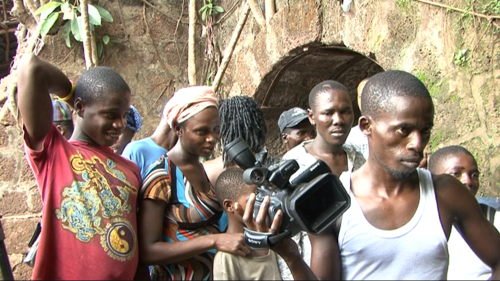
Kieran Hanson's documentary "Shooting Freetown" is a short glimpse into the lives of various media creators in Freetown, Sierra Leone during July and August of 2011. I was in the city at the same time this was being filmed, and visited with some of the same people, so I have to say that Hanson did a great job of portraying what Freetown felt like this past rainy season (this being an election year, the city will probably feel quite different.)
What I really appreciate about the project is that it incorporates the local perspectives on media creation with the filmmakers' own "outsider" view on the local industry. Although the perspective of the film is not explicitly theirs, I think that it is a good introduction to the work of Sierra Leonean media makers, especially to the brilliant work of We Own TV. It's also nice to see the We Own TV director Arthur Pratt's view on the organization outside of his directorial duties. The comment about taking advantage of outside help before that well of support dries up resonates with me especially.
With all the positives in the documentary there is an aspect of it that didn't quite sit well with me. I think that the focus on piracy in the piece is unfortunate. The filmmaker rightly takes an uncritical view towards his subjects, and piracy was something I noticed at the forefront of everyone's mind when I was there as well. But the piece also doesn't provide any alternative possibilities to copyright legislation to create money for artists. That silence probably comes with his position as an ethnographer. In trying to keep with his role as a detached observer, he looses a chance to provide an alternative model (if there were one).
It would have been nice to at least see an alternative local opinion, like perhaps the tape seller's. What I was told by people who knew a few cassette sellers well (and were able to secure me bootlegs of local music on the low) is that people just aren't demanding local media like they are demanding foreign media. When I visited in 2006, all you heard was Salone music on the streets. In August of 2011, all you heard was Ice Prince, Waconzy, Busy Signal, or Vybz Kartel. Because they get so much heat for piracy, the cassette sellers are gladly obliging their customer base, and just selling foreign music. As some would see it, the anti-piracy bill isn't really going to help the local industry, at least not in the short term.
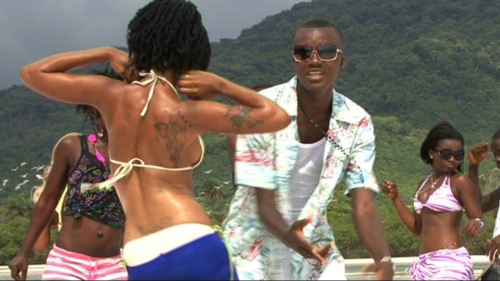
The truth is, shortly after the anti-piracy bill was passed in Sierra Leone, a broadband fiber optic cable arrived from off of the Atlantic coast, plugging Sierra Leone into a high speed connection with the rest of the world. When the fiber optic cable on the East Coast of Africa was completed, I was skeptical that its effects would be felt by a majority of a population, but word from Nairobi is that it has in fact made the Internet faster and cheaper. When the Internet is working at full force (by late 2012) in Freetown, no one's going to even buy pirated CDs anymore. The cassette sellers will inevitably go out of business, or have to find a way to adapt. (Michael Stasik notes in his thesis, 'DISCOnnections – popular music audiences in Freetown, Sierra Leone', that the Cassette Sellers Association was one of the only trade unions to survive the war, and was perhaps the first to rebound after.)
What all this proves for me is that there needs to be another solution than free market capitalism globally to promote artistic creativity. I wish that Sierra Leonean creatives would be at the forefront of that innovation rather than behind it all.
Watch "Shooting Freetown" here, available for the next two weeks:
After February 8th, look out for "Shooting Freetown" at a festival in your area. Kieran's Twitter, Facebook and Blog will be updated with all the screening information. If you'd like to screen the film yourself, or for all other inquiries, you can contact Kieran here: kieran.hanson@gmail.com








Demographics and #OccupyNigeria
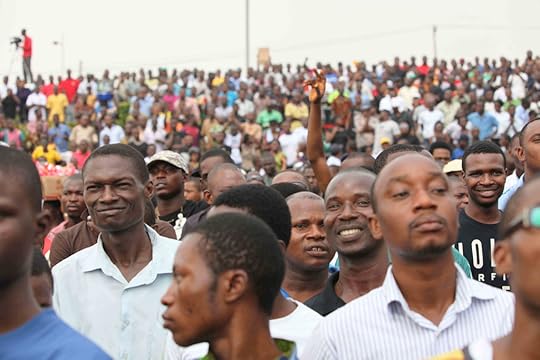
Today's Financial Times has a full page analysis by Xan Rice on how the failure of Nigerian President Goodluck Jonathan to remove fuel subsidies has raised questions about his abilities to push through "reform." Apart from the references to "the smell of sweat and marijuana"* at a rally and Boko Haram's terror campaign getting some column inches, this is probably the most interesting part:
Demographics played a role in [Occupy Nigeria]. The population is young, with 43 per cent under the age of 15. Unemployment is 24 per cent and climbing, and much worse for school-leavers and twentysomethings. In a briefing paper this month, Financial Derivatives, a Lagos-based consultancy, wrote that Nigeria was "sitting precariously on socioeconomic gunpowder".
Meanwhile, mobile-phone penetration and internet access has grown fast, increasing frustrated young people's awareness of government failures. During the fuel demonstrations, details of state waste spread by text messages and social media. It struck a nerve; when the annual presidential catering bill of more than $5.5m was queried by protesters, the detailed national budget was withdrawn from the government website. Spokespeople rushed to justify the expense, saying it included food for state banquets and visiting dignitaries.
Those involved in the fuel protests believe it could prove a defining moment in the country's history, one that could push the government to become serious about reform or act as a springboard for further unrest.
"For the first time, ordinary Nigerians have seen their power," says Nasir El-Rufai, an opposition politician who acted as an "informal adviser" to some of the leaders of Occupy Nigeria, which helped co-ordinate protests. "The government was forced to promise to look into oil fraud and waste, which has not happened before. Whether it has the political will to do so, I'm not sure."
* One other discordant note in the article was to see Ken Saro Wiwa Jnr–who has been working as a presidential advisor in the Nigerian government for a minute–making excuses for Jonathan. Btw, the front page blurb for the story uses the 'Badluck" insult protesters have hurled at the president.

Stop Land Grabs Petition
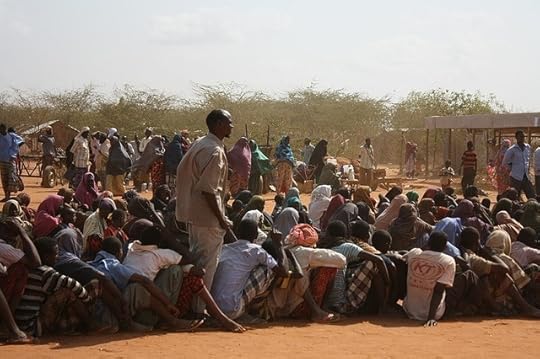
Several international organizations have been investigating and reporting on the corporate and foreign government's land grabs happening across Africa. We've covered it and the Ethiopian government's policy of forced villagization here, here and here. Now the Oakland Institute has put together a petition to U.S. president Barack Obama and the USAID administrator Dr. Rajiv Shah, asking them to stop their support to the Ethiopian government while they engage in such deals. You can do something. Sign the petition here!

Ranking the chattering classes

It must be list day around here. See our earlier post today on 'the most dangerous cities in the world' base on homicide rates. That survey at least relied on official data. Now this: A survey of the University of Pennsylvania's recently released Global Go To Think Tank Report's "Top Thirty Think Tanks in sub-Saharan Africa" (table #8, page 44) may leave the average reader of AIAC slightly perplexed as to what it takes to get respect for thinking on the continent. Perhaps unsurprisingly, four of the top five institutions are both Anglophone, and South African based; CODESRIA, the Dakar-based, pan-African (i.e. not sub-Saharan) social science conference convener, grant maker, and publisher, being the only representative to break into the South African cabal. Perhaps it should also not be surprising that those who loiter at the intersection of intelligence, security studies and the ubiquitous 'conflict resolution' and 'peace' business seem to predominate, with an admixture of free-marketeers, and international development types making up the numbers.
But then it would only be a surprise if one naively thought that an exercise in ranking African think tanks carefully took into account the impact of said thoughts (tanks?) on the daily lives of Africans themselves. For this is an exercise in elite back slapping with a distinct northern bias.
The methodology dutifully documented by Penn's 'Think Tanks and Civil Societies' [orthodox Marxists would perhaps quibble with the plural of the latter] program seems to entail a load of interns identifying a "comprehensive universe" of think tanks; sending said "universe" letters to ask them to nominate institutions for the survey. Nominated organizations are, thereafter, evaluated by an unnamed "Expert Panel" (note the capital letters), the expertise of whom we are asked — averting our eyes — to believe represent not only those of "experts" but "every region and functional area" in the "universe" identified by the interns.
Then, in the spirit of Survivor and American Idol, institutions receiving more than five nominations are sent to an expanded pool of their peers, and unnamed "journalists, public and private donors, and policy makers" for further review, only to be returned to the unnamed "Expert Panel" for a final Round III, wherein said Panel makes "warranted changes" prior to final publication at a global events including, but not limited to, "the United Nations University in New York City and at the National Press Club in Washington, D.C.".
Oh dear. Inverting the trajectory of this apparent objective evaluation, one could, without indulging in conspiracy theory, identify a conspiracy of unnamed experts and interns, no doubt, all of whom, dutifully embellished their resumes with the deflected glow of excellence, or something.
We should not be too unkind, there are some excellent think tanks on the continent that made the list (the Institute of Security Studies, the Centre for Democracy and Development, CODESRIA, and IDASA — where some of us of AIAC have worked — are obvious contenders) that significantly contribute to building the public sphere through the interrogation of challenges and realities that Africans and African government's face. But they do peak out among the dross: those whose entire existence appears to be predicated on mediating the perceived peccadilloes of the natives for the benefit of the North, alleviating post-colonial burdens by fiddling at the edges of war and disaster, or spooking the spooks with tales of woe regarding the security of white people here there and everywhere.
I guess there is also a question relating to what constitutes a "think thank"… but at this point, methinks this is purely academic.

Cape Town is 'the most dangerous' city in Africa
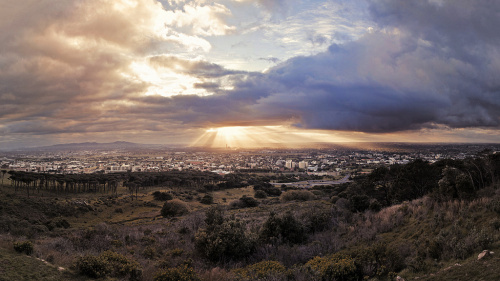
In the latest of those ubiquitous lists/rankings floating around the web, a Mexican research group has listed the world's most dangerous cities based on homicide rates. Most of them are from Central and South America — 5 of the 10 most dangerous cities are in Mexico and 40 out of the top 50 are in Latin America. Then this: the most dangerous city outside of South and North America and the Caribbean, is Cape Town at no.34. Two US cities — New Orleans (at no.21) and Detroit (no.30) — beat out Cape Town. But that's cold comfort. Oh, and the remaining cities from outside the Americas on the list also come from South Africa: Nelson Mandela Bay is at no.41, Durban no.49 and Johannesburg no.50. No other African cities made the list.
Below is a link to the original list which comes complete with statistics. Whatever the sensationalism that goes along with the list or the basis for the comparison, you don't have to be a rocket scientist to know where those murders are taking place in Cape Town at least: on the Cape Flats. That part of the city that doesn't make it into DASO commercials. #CapeTownisAwesome.
Sources: Gawker, Seguridad, Justicia y Paz.

January 25, 2012
Afro-Spectacle
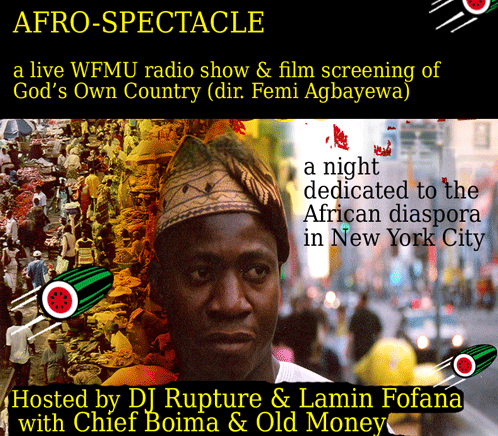
On February 1st, I will be participating in the Afro-Spectacle hosted by my Dutty Artz brethren.
On Wednesday February 1st, at 7pm, DJ Rupture and Lamin Fofana will host a special 2-hour live radio show from south Williambsburg's Spectacle Theater… Following the live WFMU broadcast — built primarily from African music videos purchased in the corner stores of NYC — we will screen "God's Own Country" by director Femi Agbayewa. GOC presents the story of a young Nigeria lawyer who immigrantes to NYC to discover that life in America is not like he hoped …
A mix between an American Hip Hop gangster flick and a Nollywood drama, we feel that the film is a great initiation into the West African film industry for an American audience unfamiliar it. What's more it's an immigrant story taking place within the city we'll be screening it in! The theme of the night dovetails nicely with my own project, African in NY, due out February 21st.
Femi is currently in London developing his TV series Brooklyn Shakara, for UK Television, so he won't be able to make it. But we'll have some surprises and hopefully more special guests!
The space is limited, and it's first come first serve. If you can't make it, check us out live, or listen back to the archived show on Lamin's The Embassy and Rupture's Mudd Up pages.

Sean Jacobs's Blog
- Sean Jacobs's profile
- 4 followers




